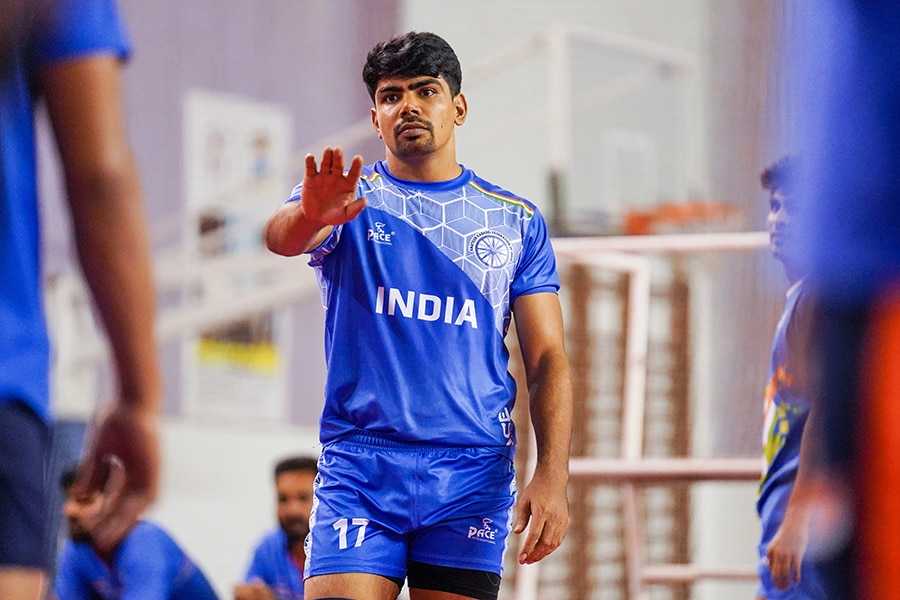
In tough times, stay positive: Pawan Sehrawat
Superstar kabaddi player and the Indian national captain on the virtues of positive thinking and why learning should never stop
 Pawan Sehrawat, the national kabaddi captain. Image: Courtesy JSW Sports
Pawan Sehrawat, the national kabaddi captain. Image: Courtesy JSW Sports
For two consecutive years, Pawan Sehrawat has been the most expensive player to be picked in the Pro Kabaddi League (PKL). In Season 9 last year, the acclaimed raider was picked up by the Tamil Thalaivas for Rs2.26 crore, while he went for a whopping Rs2.6 crore to the Telugu Titans in the recently concluded Season 10. For Sehrawat, more than material gains, the price tags represent his performance and the expectations the franchise has for him. "I look for positives in everything," says the 27-year-old from Delhi. "To me, the price tags validate my potential and performance. And to have that twice proves that my success isn't just a flash in the pan."
The national kabaddi captain emanates a similar positivity when asked if he finds such expectations onerous and if the burden of expectations bogs him down. "Not at all, in fact it motivates me," he says. "Jisse ummeed na ho, usse kya banda hope karega (You don't have hopes from someone you don't expect anything from)."
In this interview, he breaks down the need to learn despite his towering achievements, the power of positive thinking and how, as a captain, he brings together players into a cohesive, winning unit. Edited excerpts:
'Kabaddi is more a part of my life than a profession'
I started playing kabaddi in school in Delhi. By and by, when I learned what school nationals or open nationals are, I started training professionally. I would go to the nearby Khera village at 4 in the morning and spent nearly ten years there training in kabaddi. Initially, I would cycle or run to the training centre occasionally. Later, when I bought a bike with my income from sports, and then a car, I would drive to the centre—this is just to indicate how long through my formative years I've been training at the same centre. I never thought I would take the sport professionally. My family, especially my mother, would insist that I study, but my father backed my dreams of playing. While I was doing well at all stages of the sport, I never made a conscious decision to play kabaddi professionally. By and by, as I progressed, it just became a part of my life.
'Keep calm and carry on'
I've grown up watching players like Manjeet Chillar and Rakesh Kumar, both former Indian players. They lived near my house, and I used to watch them at all the local tournaments and even the Asian Games. I always wanted to be like that—my ambition was to develop leadership skills like Manjeet or the jump and dubki skills like Rakesh—or even better. Rakesh bhai had immense patience—I don't think I've ever seen him get angry. And he always tells, even now, to control one's temper since it has an adverse impact on the game.








